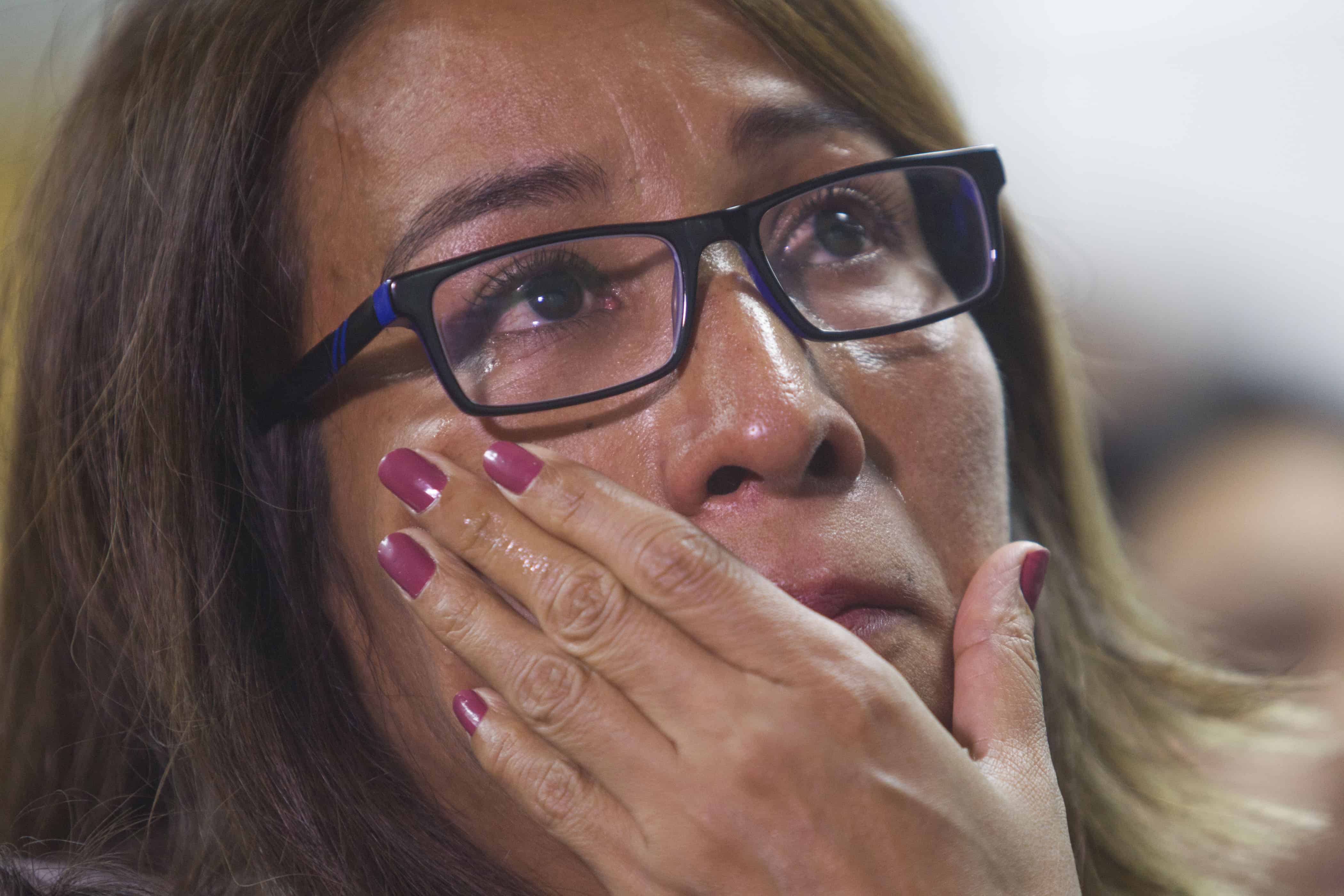Oscar García figured it was about time to get his citizenship. He has lived in Costa Rica since he was a kid, but neglected to inquire about naturalization in the past lacking the time and knowledge of the process. The 55-year-old Nicaraguan sat at the end of a 15-person line early Monday morning at the Supreme Elections Tribunal (TSE). “I thought to myself, why not? It would make other things (in terms of filing paperwork) simpler,” he said.
García, who is applying for Costa Rican citizenship based on his marriage to a Tica, was not unlike his companions in the first-floor room that morning. David Mears, a 57-year-old entrepreneur from England, was there with his Costa Rican- born daughter, undergoing the last few procedures before becoming a Tico.
“I have lived here 25 years and I plan to live here the rest of my life,” Mears said. “It seems to make sense.” Most people pursue citizenship with the hope that it will reduce the bother of renewing residency documents, grant them the right to vote or to identify more closely with the country they see as their home.
According to the tribunal, an average of 5,000 people request citizenship each year. So far this year, there have been 4,066 requests versus 5,426 in all of 2009.
Although the process ideally takes four to five months, Rodrigo Fallas, head of the TSE Civil Office, said that, in reality, it can take much longer. “It depends on how complete their documentation is. If the person presents all the documentation at once, it moves a lot more quickly.”
The two main avenues to pursue citizenship are through marriage to a Costa Rican or through living in the country as a legal resident. The requirements for those using the latter avenue are five years for citizens of Spain or other Ibero-American countries, and seven years for citizens of all other countries. Those seeking citizenship through marriage must prove they’ve been married to a Costa Rican citizen for two years and have resided in the country for at least that amount of time.
The requirements are fairly straightforward: Applicants must submit a written request, passport-size photos, and proof of legal residence in the country. Proof of residence is demonstrated through presenting a government identification card or cédula de residencia, and a record from the Costa Rican Immigration Department of the applicant’s entries and exits from the country. But what throws most off is the requirement that those seeking citizenship based on the length of time they have lived in the country “renounce existing citizenships.”
“Whether you actually lose your citizenship is a difficult question to answer,” said Carlos Corrales, a partner in the firm ARALaw Abogados, located in La Sabana, San José. “It really depends on the country of origin and whether they allow you to have a double nationality.”
According to the U.S. Embassy in Costa Rica, seeking naturalization in another country is a “potentially expatriating act.” Embassy personnel told The Tico Times that this intentionally vague statement means that seeking citizenship of another country does not, by itself, put U.S. citizenship in jeopardy.
In the last two years, five people have voluntarily renounced their U.S. citizenship in favor of becoming Costa Rican citizens. While this procedure used to be free, as of July 13, it costs $450.
For Canadians, the Canadian Citizenship Act allows for dual citizenship.
“People who acquire another citizenship do not have to renounce Canadian citizenship,” said Léonard Beaulne, political counselor at the Canadian Embassy. He said the embassy has received very few cases in which people have renounced their citizenship. Great Britain also allows for dual citizenship.
Fallas admitted that there is a gray area regarding renouncing citizenship. In fact, he said, there is a case before the Constitutional Chamber of the Supreme Court (Sala IV) challenging the process.
“There are a series of arguments that are completely reasonable,” he said. “The plaintiff (in the case before the Sala IV) challenged the current process because she disagrees with the fact that the law requires applicants to renounce former citizenship when they are applying on the basis of the length of time spent as a resident in country, but not if the are applying on the basis of marriage to a Costa Rican.” Fallas agrees that this doesn’t make sense, and argues that applicants should not have to renounce their former citizenship.
But, he said, “In practice, applicants are not required to go to their embassy or consulate … The countries (of origin) don’t really care whether they renounce or not. Most applicants don’t lose their original nationality.
“For the purposes of the process, all they have to do is submit a written paragraph (to the TSE) stating that they have renounced their prior citizenship,” Fallas said. He added that the TSE does not inform the applicant’s embassy of the procedure.
Mears, who owns the Multispa chain of gymnasiums in the Central Valley, said the process has been completely worth it. “It’s been an enriching experience,” he said. “I’ve had the opportunity to read social studies and history books, and brush up on my Spanish.”
Mears scored high on the two-part citizenship exam that is a requirement for becoming a Tico. He earned a 97 on the 200-word written essay in Spanish and an 87 on the 100-question multiple-choice section.
“It’s not a joke,” he said. “You really have to know your stuff.” Marc Roegiers, 37, co-owner of 7th Street Books, found the process simple. The only hang-up was waiting at the immigration offices to get a list of all entries and exits.
“I had a friend who just got citizenship and it seemed like a simple thing to do,” said Roegiers, a native of the United States who has lived in Costa Rica for 17 years. “I have a wife and children who are Costa Rican, so I thought I might as well join the family.”

